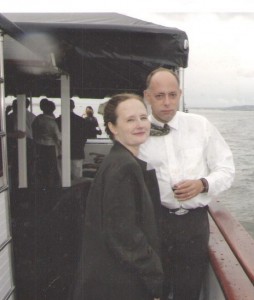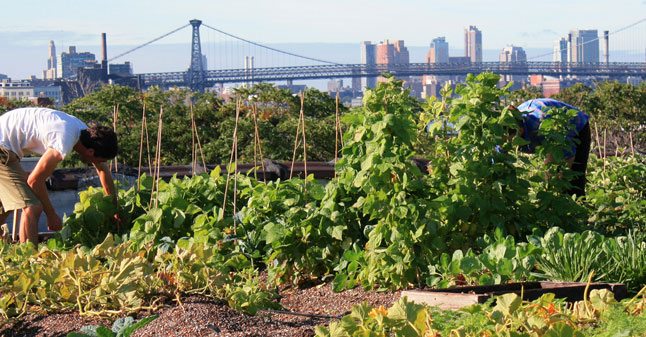Jon Soroko, co-founder of Popular Logistics, died in his sleep late Monday afternoon, May 13, 2013, at his home in Brooklyn, New York.
Tag Archives: Community
Eating Any Time Soon? Brooklyn Food Conference, Sat. May 12.
The Brooklyn Food Coalition presents the Brooklyn Food Conference, May 12, 2012, from 9:00 AM to 6:00 PM. It will be a day of Workshops, Expo, Youth Summit Policy Roundtable, Demos, Music, Art, Meetups – and good HEALTHY food.
Where? Brooklyn Tech, 29 Fort Greene Place, Brooklyn, NY 11217. Admission is free. Continue reading
In Upstate NY, Gas Drilling Debate Gets Local
![]() Tweet Maria Scarvalone’s coverage illustrates how rapidly and intensely opposition to “fracking” has spread in communities in Upstate New York. Her coverage suggest that the fracking question
Tweet Maria Scarvalone’s coverage illustrates how rapidly and intensely opposition to “fracking” has spread in communities in Upstate New York. Her coverage suggest that the fracking question
“It’s like playing Russian roulette with your water supply.”
has energized voters – against the “fracking” scheme. Scarvalone’s piece makes the probability of “fracking” coming to pass seem unlikely. Add to that other constituencies who are likely to oppose fracking: banks, property owners, title insurance companies, attorneys and real estate professionals will influence the ongoing debate over “Fracking.” Continue reading
ICT4Peace: community radio project in Sri Lanka
From ICT for Peacebuilding (ICT4Peace) – posted by Sanjana Hattotuwa –
In May this year, a colleague and I went to Nissankamallapura, Pollonnaruwa to strengthen online journalism capacities of a group trained in community radio production and had a decent production studio conveniently adjacent to an ICTA Nenasala. This groups was very interested in using the computers and internet access literally next door to their studio to publish and promote their productions on the web.
They called their station Saru Praja Radio and told us they were the first community in Sri Lanka to ask for a FM radio frequency to air their productions across a footprint of 48 villages in the Pollonnaruwa district.
Engaging as an Ashoka News & Knowledge Entrepreneur, this was a great opportunity to work with a rural community of well trained radio journalists, who had pinned all their hopes on a license to broadcast over a terrestrial radio frequency, on how the web could complement their terrestrial broadcasts and importantly, serve even as the primary dissemination model in the event they did not receive clearance to go on air.
The significant and enduring problems of existing community radio initiatives in Sri Lanka are well known and documented. It was very unlikely that Saru Praja Radio would get a license to broadcast, and even if they did, would be allowed to continue if their productions critically interrogated issues such as service delivery by local government, corruption and the rule of law, which the production team were very interested to cover.
The first thing I did was to set up a website for Saru Praja Radio, that ran WordPress on the backend and register it for 3 years. I chose WordPress because it is scaleable, robust and easy to use. Further, the skill-set learned in maintaining the Saru Praja website could be easily transferred and leveraged to support other individual or collective citizen journalism blogs / initiatives in these 48 villages. There was for example significant interest in covering issues related to the psycho-social spill-over effects of the war by individuals in the production team.
Our first day was spent talking not about technology, but what the production team wanted to achieve through Saru Praja Radio. We asked them how many people had access to the web and internet, how many had mobiles, how many had radios with CD players, what level of participation they had from local government and the Police, what kind of information would be most useful to the peoples in these 48 villages, how their production team was constituted, what equipment they had and how they intended to sustain the radio productions. Our intent was to shape our engagement based on socio-political, economic and technological ground realities.
My colleague and I were pleasantly surprised at the speed with which concepts such as citizen journalism, blogging and the differences between the broadcast model and web based journalists were grasped by the production team. On the final day, several members were even setting up their own WordPress accounts to blog in Sinhala, and all were proficient in the use of WordPress as a platform to upload, manage, share and archive their radio productions.
From community radio to Internet radio, mobiles and narrow-casting: New models for enduring needs
Distributed Social Networking as Disaster Preparedness tool
Distributed Social Networking has immense potential as a disaster preparedness tool. Particularly so if wireless mesh networks are part of our emergency communications systems – and if we assume that any likely emergency system in the United States will be, in most places, community-based rather than government-based. (There are, no question, some state and local governments which have effective systems in place. But FEMA: res ipsa loquitur). In that context we mention DiSo – a distributed social networking project which I found on Chris Messina’s site.
We think the formula – large network + actual local preparedness + redundant, resilient comms systems = equals network able to prepare, lobby, allocate resources and respond as needed. And, inevitably, build community en route.

